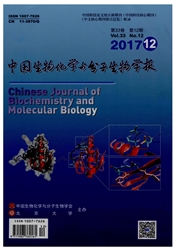

 中文摘要:
中文摘要:
T-钙粘附素是钙粘附素家族中的一个特殊成员,缺乏跨膜区和胞浆区,是通过糖基磷脂酰肌醇附着于细胞膜上.T-钙粘附素的异常表达参与到多种肿瘤的发生发展过程中,如肿瘤细胞的凋亡、增殖、侵袭和转移等过程.T-钙粘附素还可能参与肿瘤新生血管的形成和胞内外的信号传导过程.本文就T-钙粘附素在肿瘤发生发展过程中的作用及分子机制作一综述,该蛋白有可能成为肿瘤治疗的新靶点.
 英文摘要:
英文摘要:
T-cadherin is a special member of the cadherin family, which is absent of the transmembrane and cytoplasmic domain and is anchored to the exterior surface of the plasma membrane through glyeosylphosphatidylinositol (GPI). Down-regulation of T-cadherin was suggested to associated with the occurrence and development of various tumors, affecting the processed of cell proliferation, apoptosis, invasion and metastasis. In addition, T-cadherin was also found to be involved in the angiogenesis within tumors depending on extraeellular signals, which suggested that T-cadherin might be a potential factor to be considered for cancer therapy. We reviewed the functional studies on T-cadherin in connection with tumor development.
 同期刊论文项目
同期刊论文项目
 同项目期刊论文
同项目期刊论文
 期刊信息
期刊信息
